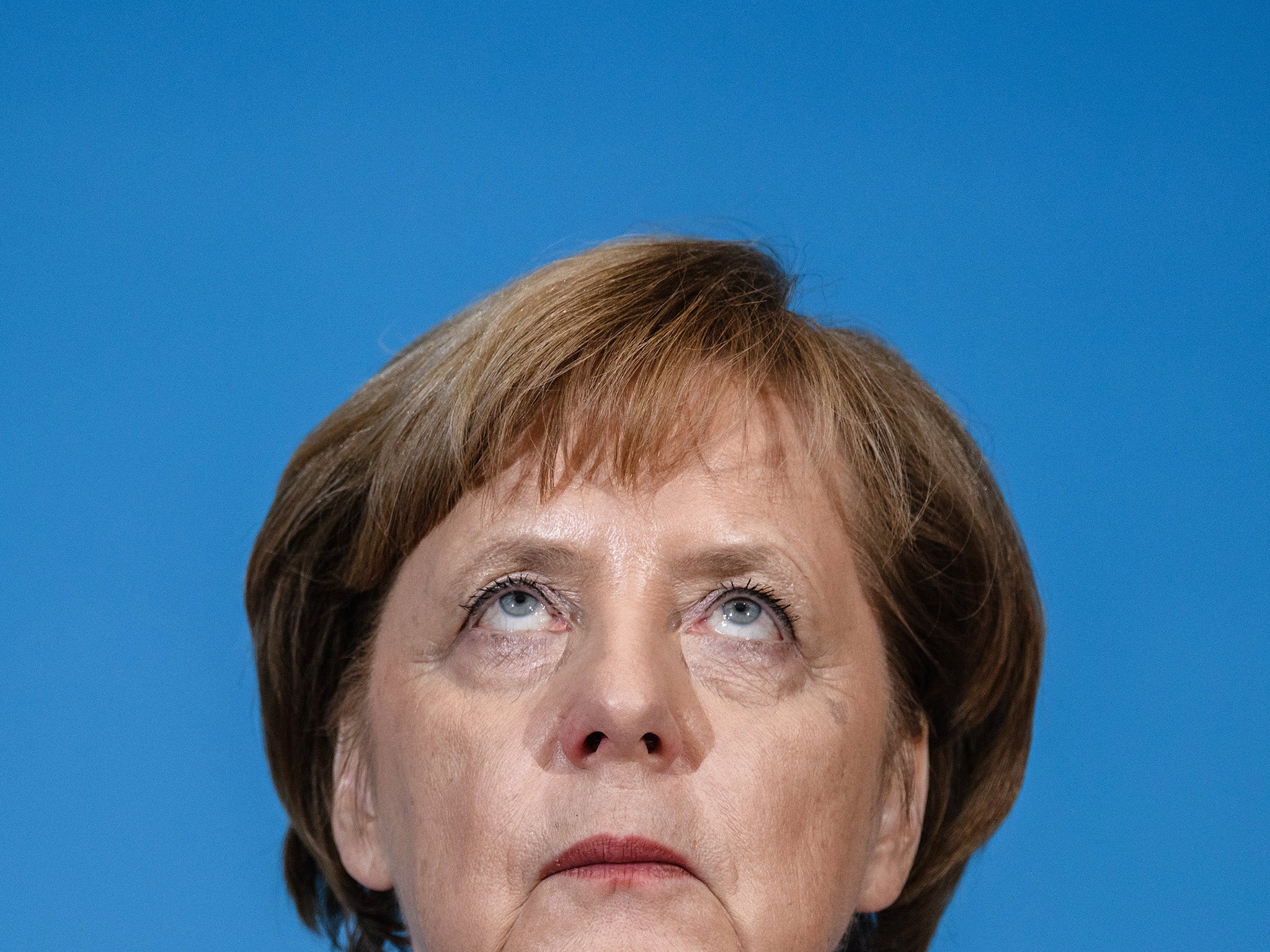Germany’s economy is growing – so why are voters turning against politicians who brought them this success?
While Germany has been good at creating jobs, it has not been so good at passing along the benefits of those jobs to the people doing them


It is an extraordinary juxtaposition. German politics are only slowly emerging from deep freeze, while the German economy is running hot, hot, hot.
Germany’s elections were on the 24 September, and at best Angela Merkel will be able to cobble together a coalition with the Social Democrats by Easter. It may well be that the SDP members will reject the coalition when they vote on 4 March, in which case – well, I don’t know what will happen, but I do know that Germany will have gone six months with a caretaker government and could well go quite a bit longer.
Now look at the economy. We have just had figures today showing that last year it grew by 2.2 per cent, the fastest since 2011. As a result the job market is very tight. Unemployment on a harmonised basis is down to 3.6 per cent, the lowest since unification in 1990. The national calculation, which includes part-time workers who sign on the register at job centres, is also a record low at 5.5 per cent.
One effect of this tight labour market is that young people are dropping out of training, with a quarter of millennials not finishing their apprenticeships, and nearly one-third of undergraduates not completing their courses. For the time being, however, German companies have managed to both to increase output and contain labour costs, while the rebound in eurozone growth more generally has boosted demand for their goods.
And that is the key feature of German growth. It is being driven by exports, not by domestic demand. The federal statistics office, Destatis, reported yesterday the economic numbers for the final quarter of last year, noting that while exports had risen, domestic demand has been stable. That makes it two consecutive quarters where home demand has not risen, something that last happened in 2011. Barclays put out a note on this yesterday, which observed that political uncertainty was taking its toll on domestic confidence. It did not expect this to change until the political outlook became clearer.
From the perspective of Britain, this is fascinating. Germany and the UK have been the two European economies that have recovered most strongly since the financial crash of 2008 and recession of 2009. Both have historically low levels of unemployment. But they have recovered in quite different ways. Germany has been driven by exports and has a huge current account surplus. At $281bn (£201bn) it is the largest in the world, equivalent to nearly 8 per cent of GDP. The UK’s growth has been driven by domestic demand, which has left it with a current account deficit of some 5 per cent of GDP.
Both situations are unsustainable, though the UK position is much more precarious. Germany has to lend other countries money so they can continue to buy its goods. The UK has to borrow from abroad to support its hunger for imports. Yet – and this is odd – the electorates in both countries appear divided and dissatisfied.
Leave the UK aside, for there is the special issue of Brexit which is confusing everything. In Germany at the last election the support for the two main parties and their allies was down to 54 per cent, the lowest in any federal election for more than half a century. It was a rejection of Angela Merkel, but it was also a rejection of conventional politics. Why on earth should voters in the most successful economy in Europe reject the leaders that brought them this success?
There can be no simple explanation, certainly not yet, but I think we can see elements of it. One is, of course, immigration, but the rejection is too widespread for that to be anything near a complete answer. I think there are two other important elements.
One is that while Germany has been good at creating jobs, it has not been so good at passing along the benefits of those jobs to the people doing them. Real living standards have risen very little in the past 15 years. Many jobs for the young are so-called mini-jobs, where people have to piece together a living from several part-time and low-paid posts. And the combination of fiscal responsibility (Germany has a fiscal surplus as well as a current account surplus) and the burden of supporting the former East Germany has led to a squeeze on public spending in the West. There is a fear that the transfer to East Germany will be repeated in wider transfers to the rest of Europe.
The other element is one of style, and this is common across all advanced democracies. Even politicians that seek to appear ordinary and in a way are, notably Angela Merkel, appear insulated and aloof. So voters want something different. Quite how they will get that is another matter.
Join our commenting forum
Join thought-provoking conversations, follow other Independent readers and see their replies
Comments